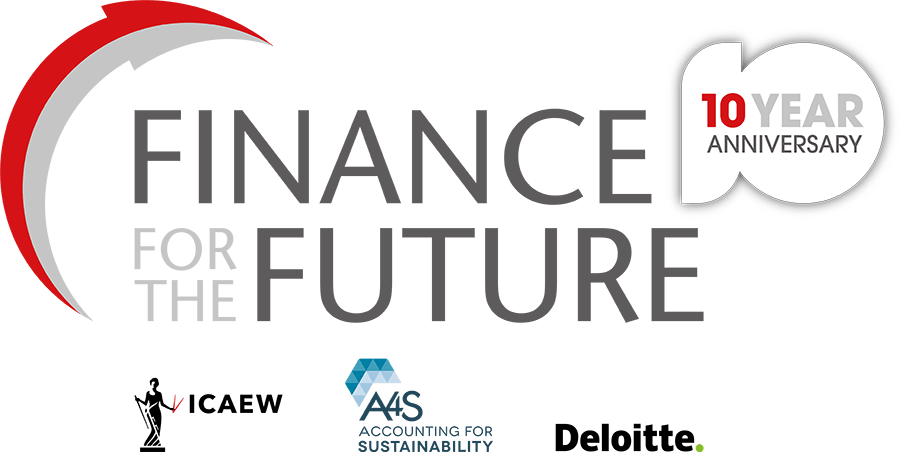Sustainable accounting has often been viewed as the preserve of multinationals replete with resources. But in France, small and medium-sized companies have shown great interest and resilience in adapting to change in this field.
Which would explain why the winners in the Innovative Project category at the ICAEW-backed Finance for the Future Awards were the French business school Audencia and Nepsen, a group of 13 French SMEs. Together, Audencia and Nepsen have been pioneering experimentation of multi-capital accounting in real-life case studies with the Nepsen group of companies.
These companies, already forward-thinking in sustainability, last year changed their legal status to become an “entreprise à mission” – a business with purpose that is independently verifiable, broadly equivalent to a BCorp.
“We were extremely surprised by the award,” says Prof Delphine Gibassier, Director of the Multi-capital Global Performance research centre at Audencia France. “For the last few years, we’ve also been taken aback by the amount of media attention and attention from companies coming to us. And in France particularly by smaller companies coming to us.”
The model helps companies become more sustainable by accounting for environmental and social performance in a non-monetary way. It is an accounting system that accounts for physical flows of previously defined indicators. It also places the responsibility for sustainability performance primarily with the chief financial officer.
To make it easier for SMEs, the model also uses the same language as in financial accounting, such as a budget and other accountancy-based terms.
Prof Gibassier says: “We started with SMEs because we wanted it to be tightly linked to the financial accounts. Typically, in larger companies sustainability indicators lie with a non-financial person in an Excel spreadsheet somewhere else in the company. We wanted to put the responsibility of sustainability performance back with the CFO or chartered accountant.”
Prof Gibassier and her team warned participant companies that under the multi-capital accounting model they might be surprised with the results. Although many ‘sustainable’ companies think they have zero emissions, the question is “whether your emissions are above the budget that you set yourself using the specified science-based targets.
“Our system allows business owners to see whether their current economic activity falls within the safe and just space for humanity or not,” she says in reference to Kate Raworth’s ‘Doughnut Economics’.
Companies must also be flexible when using the multi-capital accounting system because as a company’s products, services and territories change, so will their sustainability indicators, meaning that one year they may exceed their ‘sustainability budget’. This would require remedial action on environmental and/or social matters.
“When it comes to monetisation there are two ways of looking at it. There’s monetisation using what we call a ‘nudge’, which is making sure that when you integrate a financial version of the impact into your accounts, it’s bad enough that internal action will be taken. We would like to see that companies cannot make a profit if they haven’t dealt with the capex and opex that they need to take actions to remediate where they are in sustainable terms,” Prof Gibassier says.
When working with larger companies, to ensure the effectiveness of their innovative accounting model, the research team didn’t want to scare off potential converts by forcing them to change entire ERP systems.
“When you talk about changing a system that is going to be mimicking your financial system, allowing you to audit and follow through, in theory it’s very nice. But in practice, it’s scary. We realised that we can’t ask larger companies to change their ERP system or to even think about modifying it like an SME would do,” Prof Gibassier says.
For large companies sustainability data is pulled into a few ‘different buckets’ for example, production, HR, purchasing, etc. Then a different IT system will pull out the data and bring it into another system, which will make the calculations.
The next steps for Prof Gibassier and her research team are to share the model “in the best way we can”, once the full methodology is finalised, which is planned for this year.
“That’s hard because once it’s out of your head it might not be used as you want it to be used. We’ve struggled with this question and whether to use certification but if you try to control innovation it dies. So, we want to uphold the key principles, but we want it to live freely so that focus is always on sustainability.”
Finance for the Future excellence
The Finance for the Future awards programme is a partnership between ICAEW, A4S and Deloitte. The awards recognise and showcase high-quality examples of financial leadership. They're also about inspiring others, boosting ambition and building community by sharing knowledge and creating momentum for real change.


